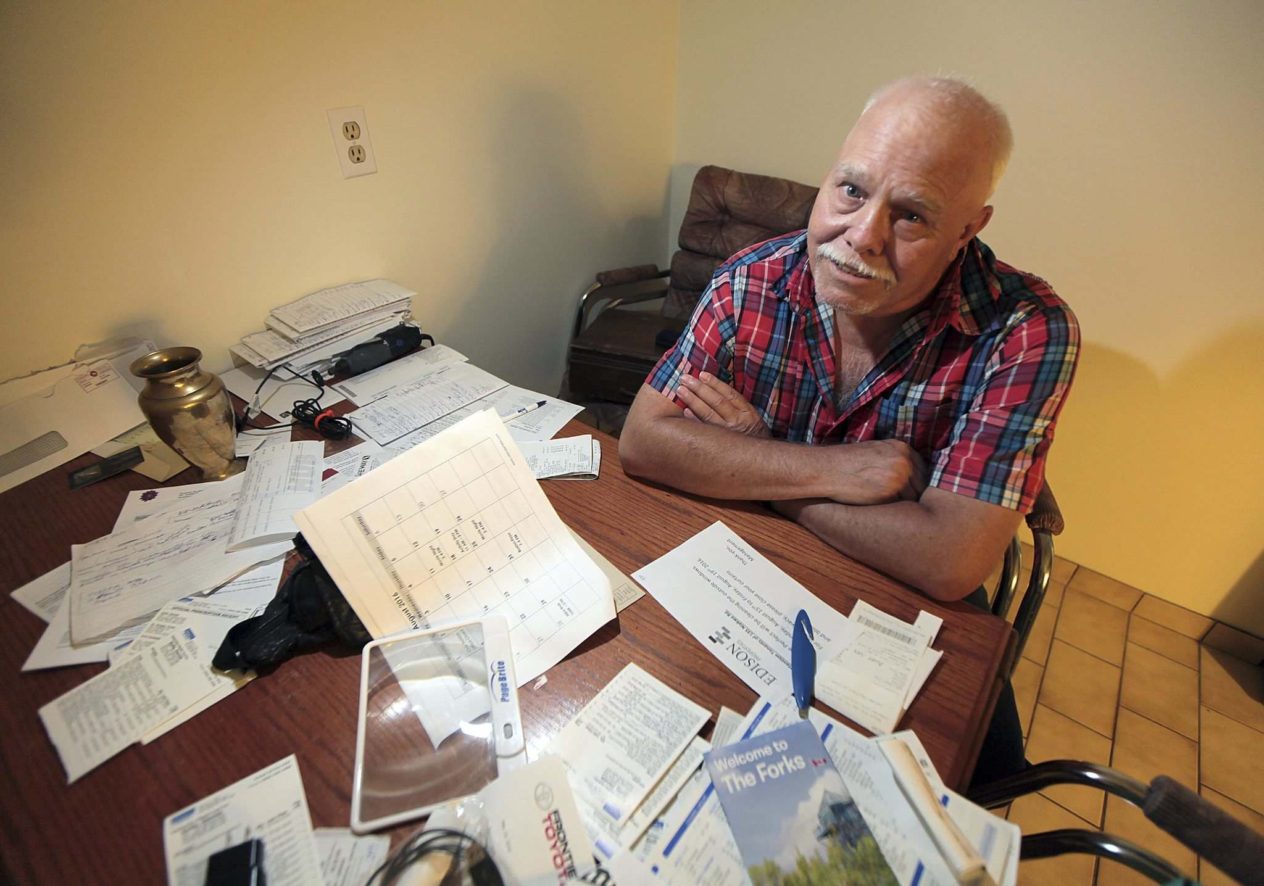Ongoing support is crucial for brain-injury survivors, who often suffer invisible wounds with long-term impacts
Dennis Guile’s kitchen table is in many ways an extension of his brain.
Covered with reminders and notes, it helps him navigate what he has to do for the day, the week and month ahead.
“If I don’t, I will forget a lot of things.”
The 67-year-old former truck driver isn’t merely referring to the forgetfulness that comes with age.
His short-term memory is profoundly impaired.
He also suffers a host of other cognitive and emotional problems in the aftermath of an accident on the job more than 15 years ago when his truck crashed into a wall, knocking him unconscious. He came to minutes later, but once in hospital, he fell asleep for four days.
Today Guile appears physically unscathed from the crash.
Yet the effects of the brain injury he sustained linger.
“I remember very little of the last 16 years, period,” he says. “Even last week, I’ve had trouble trying to remember what I did.”
Unable to work full time, life has been a struggle. Guile tires quickly. Basic tasks — even talking — can be taxing. And he often wrestles with anger, depression and anxiety.

